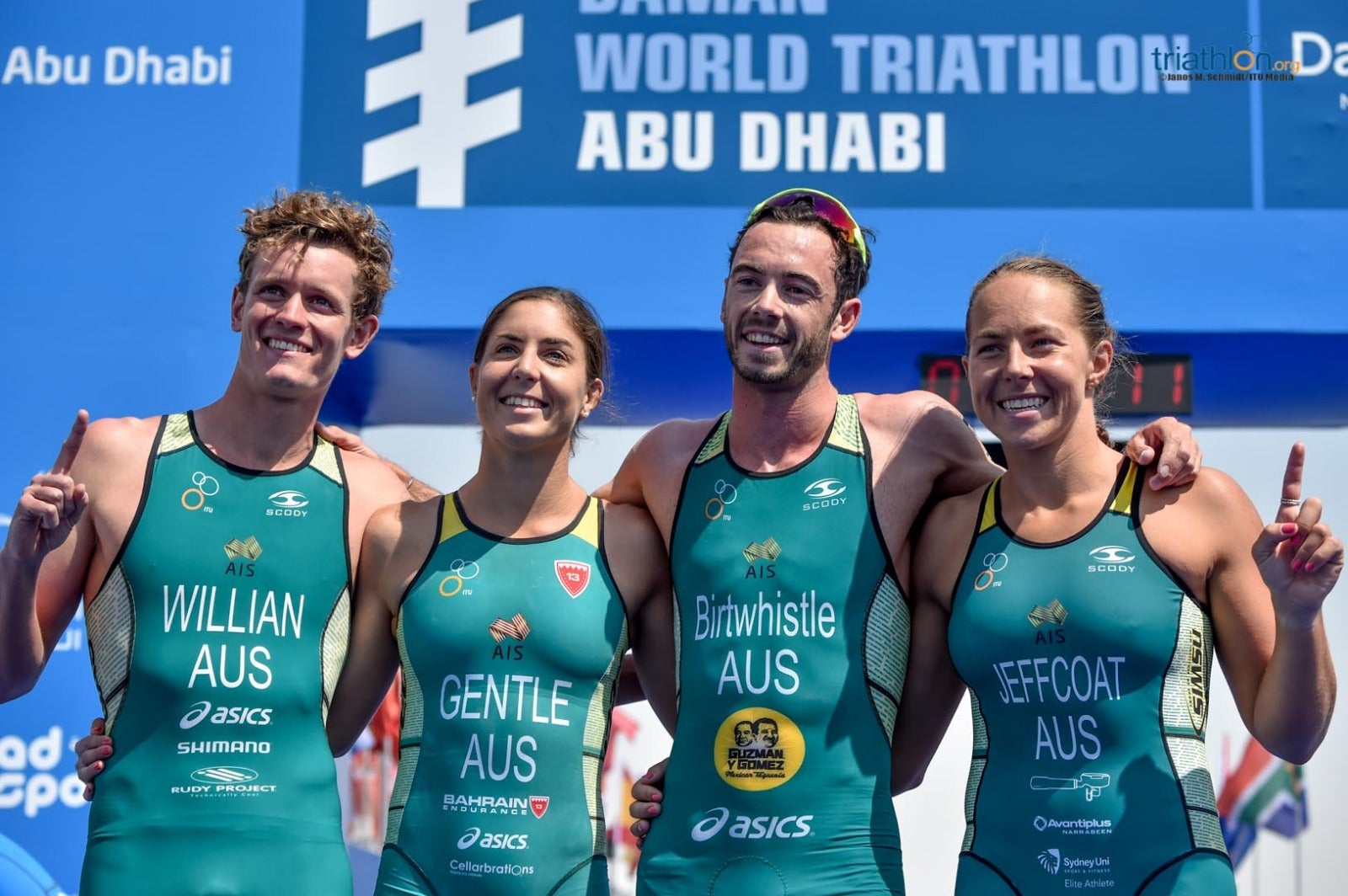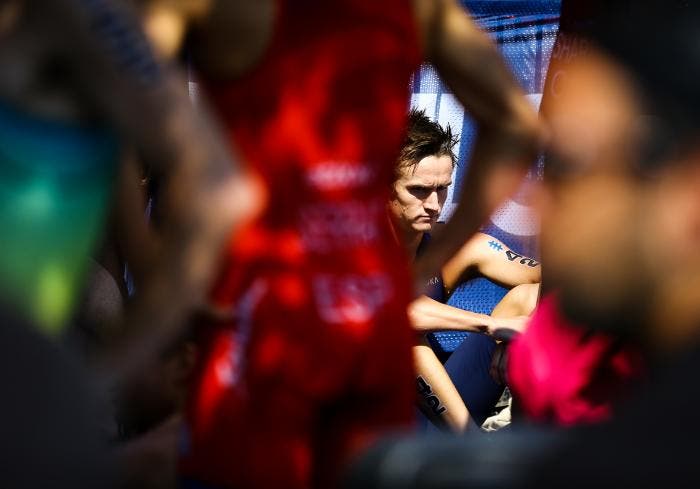How Australia Hoodwinked The U.S.

Photo: Janos Schmidt/ITU
At next month’s Olympic triathlon, Australia will be the only country sending the full quota of three men and three women to Tokyo. It’s a testament to the depth of the Aussie team, but a large share of the credit goes to a high-stakes game of chess that saw the U.S. outsmarted, outflanked, and eventually put into checkmate during the final weekend of the Olympic qualification cycle.
The Americans Appear To Clinch Their Spots
Heading into the second weekend of June, America was set up to be the only country to send six athletes to Tokyo—thanks to having at least three men and women ranked within the top 30 of the World Triathlon Olympic Rankings, which began in May of 2018 and ended June 14. Unfortunately Eli Hemming (above) was ranked smack-dab at number 30, and he developed a stress fracture the week before the Huatulco World Cup and was forced to drop out.
Sitting in a virtual tie with Hemming in 29th was 2016 Olympian Aaron Royle of Australia, a country that had only two athletes within the top 30. Royle went to Huatulco seemingly to protect his spot against Hemming—who fortunately for Royle didn’t race. With Hemming out and his spot secured, Royle took a knee in T2, and the Americans breathed a sigh of relief that they would likely have their three spots.
A Plot Twist Down Under
But in World Triathlon, you’ve got to keep your eyes on all of the pieces. Somehow Huatulco wasn’t the only race with Olympic points on offer during the final weekend of the “World Triathlon Individual Qualification Ranking.” Some 8,700 miles across the Pacific, the Oceania Cup in Port Douglas, Australia, also counted toward the aforementioned rankings, and that was very bad news for the old Red, White, and Blue.
Lurking back in 33rd place, behind both Hemming and Royle entering the weekend was Aussie Luke Willian (pictured above). Willian’s name won’t ring a bell, but he could be considered a slow-moving pawn making his way across the board. He’s not winning major races, but he has been quietly cleaning up at the Cup level in Australia; he’s also the worst thing to happen to USA Triathlon.
Willian took the win in Port Douglas to leap up five spots to number 28, bumping Hemming down to 31st, but keeping Royle perfectly in 30th—making Australia the only country with three athletes in the top 30. (Team Australia also had eight of the top 10 spots at Port Douglas, making the final outcome look almost scripted.) It was a grandmaster-level move and checkmate for the Aussies, who might lack the firepower to medal in the individual races, but now possess a roster that makes them a serious medal contender in the relay.

Post Mortem
So where did the U.S. go wrong? Obviously Hemming getting hurt opened the door for the Aussies to steal the spot, but the bigger issue is a lack of depth among the American men. Five American women finished within the top 16 of the final Olympic Rankings, yet only two American men finished within the top 30 (Morgan Pearson and Matt McElroy—who is now left out of Tokyo). The pressure on Hemming was so (unnecessarily) great because after his spot in 31st, the next American was Kevin McDowell in 36th. After that, you have to scroll way down to Seth Rider in 59th. By the time you got to Rider, Australia had already packed in seven men in those rankings, four of which have top-level WTCS pedigree.
Then there was the grandmaster-level strategizing by Triathlon Australia, which has been the most scrutinized governing body in the history of this relatively young sport. They had two strategic pieces on the board: One, send Royle to battle head-to-head with Hemming because he’s already been traveling around the world; and two, keep Willian close to home where he’s been cleaning up. They only needed one piece to exploit the Americans’ fragile position, and Willian’s win meant Royle’s DNF did not factor.
Now What?
Why does it matter if there’s only one U.S. man (Pearson) with a legitimate shot to medal in the individual race? Because having six athletes in Tokyo gives Australia unlimited flexibility for the relay. Should an athlete get injured or sick in the three or four days between the individual races and relay, there’s an athlete ready to step in. With only two men in Tokyo, America will need both Pearson and Kevin McDowell to be at full strength for the relay. And in terms of using teammates to help secure Pearson a potential medal, it might feel lonely out there on the streets of Tokyo with only one American to get his back.
Australia now has the option of resting an athlete for the relay, and they’re one of five countries with a legitimate shot at a relay medal—even gold isn’t out of the question. But the U.S. could also use McDowell as a relay ringer, and that’s the biggest reason he was chosen over McElroy for the second men’s spot. Don’t expect McDowell to drop out of the individual race, but don’t expect him to be sprinting it out for 15th place either. His goal is to help Pearson win an individual medal—if he can indeed help—and then focus on winning gold in the relay.
Will Australia’s third slot ultimately affect the triathlon medal tally in Tokyo? Probably not. But if they happen to take a relay medal over the U.S., it’ll be a further reminder that the game of triathlon has a lot of moving pieces on the board, and that the Americans need to do a better job of keeping their eyes on the prize.